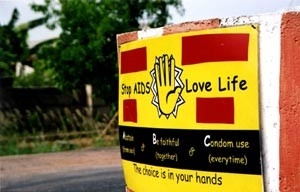People with AIDS Along U.S.-Mexico Border Lack Treatment, Education
March 16, 2007 / by Eddie North-Hager- Research
If the 2,000-mile region along the U.S.-Mexico border were a state, it would rank 12th nationally in AIDS cases per capita, says Helen Land, a University of Southern California associate professor in the School of Social Work.
This hidden population, isolated from their families and living with one of the most misunderstood and stigmatizing diseases of this era, is chronicled in "Outreach and Care Approaches to HIV/AIDS Along the U.S.-Mexico Border" (Haworth), a collection of articles which Land co-edited.
Land has worked in the field of HIV and AIDS since 1983, focusing much of her attention on the plight of Latinas caring for men with AIDS or Latinas who had AIDS themselves.
"AIDS doesn't have to be a fatal disease," Land says. "But AIDS will be fatal until we can get the Latino community to deal with it and until we get the services in place to get it under control."
Land and co-editor Herman Curiel, an associate professor at the University of Oklahoma School of Social Work, bring together in-depth discussions about the language problems, the lack of resources, poverty, public shame and other issues surrounding this devastating health challenge.
"These are people who don't just come and say I have AIDS," Land says. "It is so stigmatized in Latino communities that they might as well wear a big red 'A.' They are a very vulnerable group."
Land's work led her to be the guest editor of a special issue of the "Journal of HIV/AIDS and Social Services," which was turned into this book.
Co-editor Curiel also is a leader of a consortium of AIDS resources and education located in Oklahoma City.
The essays explore ways to make sex safer for Mexican sex workers, the problems of educating and caring for transient day laborers constantly on the move, and accessing care on both sides of the United States-Mexico border – a region filled with rural outposts and sprawling cities that extends from Texas to California.
The book also examines culturally sensitive health care practices to deal with AIDS and HIV because, while Latinos comprise 13 percent of the U.S. population, they account for 19 percents of new AIDS cases.
Land believes the most effective way to staunch the AIDS outbreak along the border is to educate people from the communities who then can visit their churches, schools, neighborhoods and even the soccer fields to teach them about HIV and AIDS, urge them to get tested and explain treatment.
"There are sick people often in the middle of god-forsaken nowhere with no services," Land said. "There are women who are abused on the street trying to make a buck to support their kids. Many go back and forth across the border and become exposed to HIV."
To reference the work of our faculty online, we ask that you directly quote their work where possible and attribute it to "FACULTY NAME, a professor in the USC Suzanne Dworak-Peck School of Social Work” (LINK: https://dworakpeck.usc.edu)
